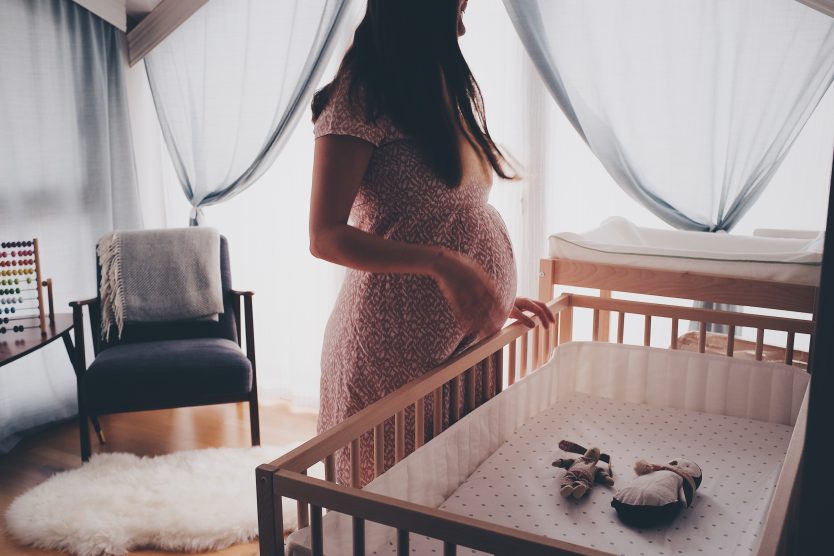There could be many factors at play if you’re having trouble getting pregnant.
First off, there may not actually be cause for concern yet, unless it’s been a year since you started trying to conceive. The American Society for Reproductive Medicine states that a couple who has had unprotected intercourse without being able to conceive for 12 months should then seek a medical evaluation.1 It could be an issue with either the woman or the man in a relationship, or both members of the couple.
But if there’s something in your medical history or a physical condition that causes concern, it might be worth seeing a doctor before 12 months. For instance, you may wonder if your pelvic floor dysfunction can cause infertility.
Let’s examine that question.
What is Infertility?
The Society for Reproductive Medicine defines infertility this way:
“The result of a disease (an interruption, cessation, or disorder of body functions, systems, or organs) of the male or female reproductive tract which prevents the conception of a child or the ability to carry a pregnancy to delivery.”1
The Society goes on to state that about one-third of infertility cases can be attributed to factors affecting the man and and a third to factors affecting the woman. The final third can be a combination of both partners or in some cases the cause cannot be explained.2
Infertility affects between 10 and 15% of couples, as 85% of couples with normal fertility will conceive within a year of trying.3
Can Pelvic Floor Dysfunction Cause Infertility?
This is a common question among women diagnosed with pelvic floor dysfunction. The answer is both yes and no. That’s because pelvic floor dysfunction is a broad term that covers a number of pelvic health issues.
At its most basic, pelvic floor dysfunction refers to an impaired relaxation and coordination of pelvic floor and abdominal muscles, often leading to chronic constipation, straining, hard or thin stools, and a feeling of incomplete elimination.4
This “dysfunction” occurs when the muscles that support your pelvic organs, known as the pelvic floor, become too loose or too tight. Then these muscles, which act like a hammock, cannot properly support your pelvic organs and control urination and bowel movements.
Problems with your pelvic floor muscles can lead to other conditions. Here are a few examples:
- Pelvic Organ Prolapse, when your uterus, bladder, or rectum (or other tissues and organs) drop from their normal position.
- Incontinence or urinary leakage.
- Accidental bowel leakage, or fecal incontinence.
If these important muscles are either too tight or too loose, it may not be a cause of infertility. But it can be associated with difficulties in sexual function, which could indirectly make it more difficult to conceive, for instance if you suffer from pain during sex.5
The American Society for Reproductive Medicine reports that the most common female infertility factor is an ovulation disorder, to put it simply, an issue with eggs.2 But there are other pelvic disorders that can contribute to female infertility.
What Pelvic Disorders Impact Fertility?
There are some female pelvic conditions that can, in some cases, impact your fertility. They can also lead to pain, so it’s important to seek medical diagnosis if you’re suffering from pelvic pain.
Endometriosis: This is caused when tissue similar to the lining of the uterus grows in other places in the body. It is one of the most common gynecological diseases, and its primary symptoms include pain and infertility.6
In fact, anywhere from 30% to 50% of women with endometriosis are not able to get pregnant, making this condition one of the top three causes of female infertility.7
That’s because inflammation from endometriosis may damage the sperm or egg, or interfere with their movement through the fallopian tubes and uterus. In severe cases of endometriosis, the fallopian tubes may be blocked by adhesions or scar tissue.8
Pelvic adhesions: It can be difficult to get pregnant if you suffer from adhesions that form on the ovaries, fallopian tubes, or uterus.7 Polyps, overgrowths from endometrial glands that range in size and stick out into the uterine cavity, can sometimes be associated with infertility.
Uterine fibroids: These are benign tumors of the muscular uterine wall. While most women with fibroids do not have problems with fertility, there are some instances that it can be a problem depending on the placement of the fibroid—if it’s in the uterine cavity, for instance.7
More About Pelvic Floor Dysfunction
Seek Medical Attention
Because there is no official link between pelvic floor dysfunction and infertility, there is no one fertility treatment that is recommended.5 Also, fertility specialists may not necessarily treat you if you’re suffering from chronic pain. But some women who are suffering with infertility have other conditions that can cause pain. Some of the conditions we mentioned can cause both infertility and pelvic pain.9
Pelvic pain, similar to infertility, can have a number of causes. If you suspect you have a pelvic floor disorder, or you’re struggling with infertility, seek medical attention. Use our Physician Finder to find a doctor near you with expertise in women’s health, who can help with advice and treatment for pelvic floor conditions and the possibility of fertility problems.
















